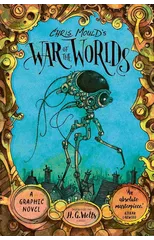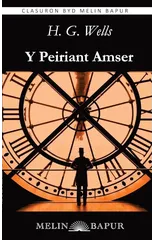HarperCollins is proud to present its incredible range of best-loved, essential classics. "That these man-like creatures were in truth only bestial monsters, mere grotesque travesties of men, filled me with a vague uncertainty of their possibilities far worse than any definite fear." Edward Prendick, the sole survivor of a shipwreck in the South Pacific, is set ashore on an island where he meets the mysterious Doctor Moreau. Horrified by the discovery that Moreau is performing vivisection on animals to form monstrous human hybrids, Prendick flees into the jungle. But he soon realises that the island is populated with Moreau's terrible creations, and not all are divested of their savage habits . . . H. G. Wells pioneered ideas of society, science and progress in his works, which are now considered modern classics. Written in 1896, The Island of Doctor Moreau is an imaginative exploration of the nature of cruelty and what it means to be human.
H.G. Wells
H.G. Wells was a prolific English writer best known for his science fiction novels. His most notable works include "The War of the Worlds," "The Time Machine," and "The Invisible Man." Wells' writing style was characterized by his imaginative storytelling, social commentary, and exploration of scientific concepts. He is often credited with popularizing the science fiction genre and influencing future writers in the field. "The War of the Worlds" remains his most famous work, depicting a Martian invasion of Earth and exploring themes of imperialism and the resilience of humanity. Wells' contributions to literature have had a lasting impact on the genre of science fiction and continue to be celebrated to this day.






